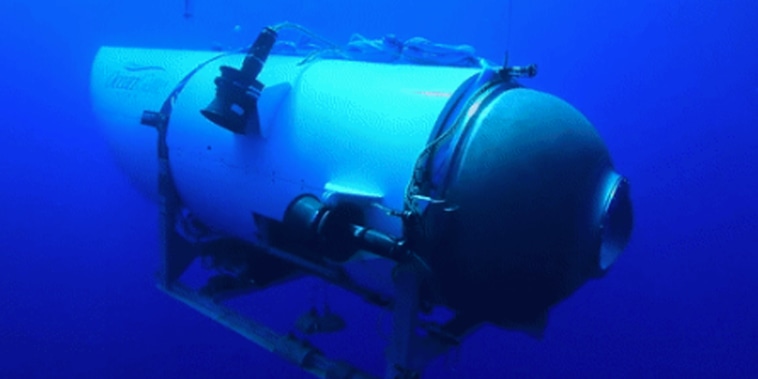The decision by five people to undertake a dangerous and most likely ill-fated undersea voyage to visit the wreck of the Titanic is raising questions about the liabilities assumed by people and businesses taking part in risky activities.
Experts say that no set rubric determines whether a business will have to pay damages in the event of a mishap and that most operators buy liability insurance anyway because the waiver forms they ask clients to sign may not ultimately be enforceable.
In the U.S., whether a business operator becomes liable for a catastrophe can depend on the laws of the state where the business operates or even a judge’s interpretation of the waiver form, said Kenneth S. Abraham, a distinguished professor of law at the University of Virginia.
‘There’s some variation from activity to activity and jurisdiction to jurisdiction,’ Abraham said.
In the case of OceanGate, the Washington-based company that oversaw the trek to the Titanic that has captivated the world this week, guests were asked to sign a liability waiver that emphasized the possibility of death, said a former passenger, the longtime television writer Mike Reiss.
But that may still not absolve the company in a wrongful death case.
‘If an operator behaves recklessly, most courts will not let the operator off the hook,’ said Nora Freeman Engstrom, a law professor at Stanford University.
Many waiver forms that are signed before high-risk recreational activities take place, like skydiving, snorkeling or skiing, are frequently enforceable, as long as they are clearly written, said Engstrom, who added that the scope of an accident, should one occur, also must be encompassed within the contracts.
A representative for OceanGate did not respond to a request for comment.
Nonetheless, the mere existence of the waiver form may not deter a trial lawyer, Abraham said. The overwhelming majority of lawsuits headed to trial ultimately result in settlements, he said.
Numerous lawsuits are filed against skydiving, scuba, parasailing and other extreme-activity companies every year, records show, some of which result in large settlements. The cases, however, can take years to litigate.
In February, a Montana-based scuba company settled a suit out of court after a guest died during a dive at Glacier National Park in 2000, before the business shut down.






